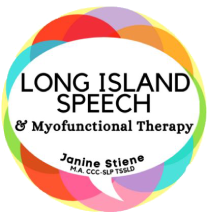Blog
Understanding Dyslexia
Dyslexia affects a child’s ability to recognize and manipulate the sounds in language. Children with dyslexia demonstrate difficulty decoding new words, breaking words into chunks, and sounding out words. This further causes difficulty with reading, writing, and spelling. Dyslexia is the most common learning disorder and it is not a reflection of a child’s intelligence. In fact, it is considered to be a gap between the child’s ability and achievement.
Some signs and symptoms to be aware of in younger children include; difficulty learning rhymes, a speech delay, difficulty following directions, repetition or omission of short words, and difficulty distinguishing between left and right. Signs that may appear in school-aged children can include; difficulty sounding out new words, lack of fluency, reversing letters and numbers while reading, and difficulty taking notes, rhyming, associating sounds with letters, and sequencing sounds. Some symptoms of dyslexia that may affect children outside of school can include the following; difficulty decoding logos/signs, learning the rules to a game, keeping track of multi-step directions, telling time, and learning another language.
It is important to consider the fact that dyslexia can impact a child socially and emotionally as well. Before a child is diagnosed, they may suffer from self-esteem issues if they feel they are not performing the same as their peers. Children with dyslexia may worry that there is something wrong with them, as they are often accused of not trying hard enough to learn how to read. This is a very important factor to be aware of so that it can be addressed appropriately. It is critical for parents or teachers to boost a child’s self-esteem and provide emotional support in this situation. Some ways to provide emotional support can include; acknowledging the child’s strengths, combating negative self-talk, acknowledging their effort, and celebrating hard work.
There are several accomodation options for kids with dyslexia within the schools. Accommodations may include; extra time on tests, a quiet space to work, the option to record lectures, elimination of oral reading in class, exemption from foreign language learning, and the option to give verbal answers when appropriate (rather than written).
-Deidre B
https://childmind.org/article/understanding-dyslexia/




